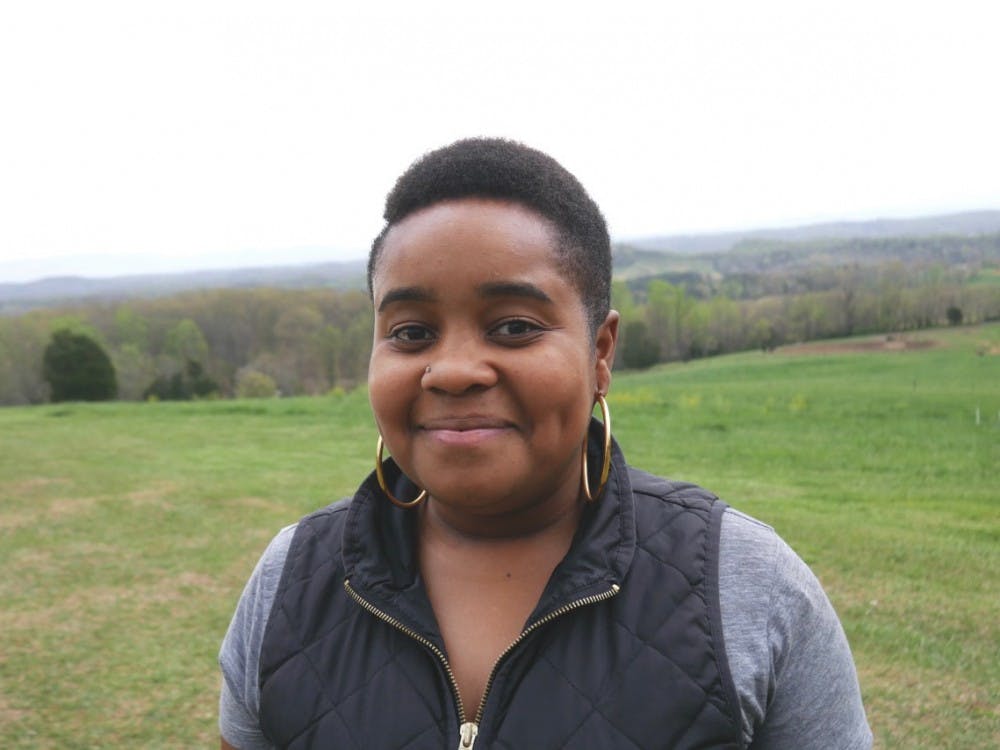Danielle Purifoy, Graduate School ‘18, is a Carolina postdoctoral fellow at the University of North Carolina at Chapel Hill who studies the racial politics of modern segregation in black communities across the South. The Chronicle spoke with Purifoy about racial diversity in environmental academia, her experience working in racial environmental justice and her lived experience as a woman of color in environmental academic spaces.
The Chronicle: How has your lived experience influenced your current environmental justice trajectory?
Danielle Purifoy: I was a senior in college when Hurricane Katrina hit New Orleans. That storm was the first time I had heard about environmental racism and really experienced how a lot of folks that called themselves environmentalists were willing to dispose of New Orleans. I was struck by how callous people were about the loss of people’s lives and how they wanted to erase hundreds of years of black culture in this city. I ended up working down there for about three years on the infrastructure and environmental planning division of the recovery effort and saw firsthand how the federal programs administered by [the Federal Emergency Management Agency] were disadvantaging communities that were the most vulnerable, or communities of color. That’s really what sent me down this path.
TC: Can you shed some light on diverse representation in environmental spaces, and why there may be a lack of black individuals in the field?
DP: I’ve actually written about this idea of whiteness in environmentalism. I think one of the challenges is the fact that the history of what we think of as environmentalism and what has been morphed in academia as environmental studies, is really problematic. One of the things that I think continues to be a challenge in all environmental spaces—social, professional or academic—is a refusal to think about where conservation and preservation come from and who was excluded from the movement and the benefits of environmental preservation. This includes Native Americans who were driven out from their homelands in order to establish our national parks system or indigenous peoples who were treated as inferior species in nature. And this legacy is something that has persisted in our environmental curriculums.
There’s also the inattention to the sorts of issues that I study in the field. Black spaces are still considered disposable communities and the sort of environmental issues and injustices that black people face in these spaces tend not to be the priority of other environmentalists. The lack of historical representation has consequences for who sees themselves as welcome within the profession or who sees themselves as being a viable environmentalist.
TC: Can you speak to the importance of having people of color in environmental spaces?
DP: Every day there are decisions being made about where the next industry will be built and on whose back, and it’s really important for people who look like me, the people of color, to be in those spaces to fight that fight on the side of communities that are more likely to be the backs on which the industries are built.
With climate change, which is a global phenomenon and which I argue comes directly from our inattention to environmental racism, I think it is important that people are aware of these racially motivated disparities and that those people who are most likely to be affected are there to advocate for environmental justice. It’s really critical for people of color and folks in impacted communities to be involved in their own wellbeing. The discussion around climate justice right now doesn’t really serve the interests of all of us. It serves the interest of wealthy, white individuals.
TC: How do you think institutions like Duke and the Nicholas School of the Environment can do better to diversify their environmental programs and spaces?
DP: The Nicholas School needs a dedicated program for environmental justice. I know that there have been some efforts toward that in the last year. But I think since North Carolina is the birthplace of environmental justice as a movement, there’s a ton of work that is a model for lots of other states. I think that fact should be really well reflected in our academic institutions.
There is so much room in other departments at Duke, or any institution, to really think about space. For me, thinking about how our social structures and how people are organized based on race, gender, class and sexuality hierarchies are things that are really important questions for all of us—no matter our discipline—and it would be really nice for me to see that sort of representation across the University.
There’s a lot to be done, and it’s not just Duke. But one of the things that Duke does have is that the Nicholas School is the premier school of the environment in the region. This is our environmental institution in the South, and the South, given its history with racial politics and environmental racism, is an important space to highlight. It would be really nice if this sort of flagship environmental school in the South dedicated its energy and resources to thinking about these problems.
Correction: Purifoy was a senior in college when Hurricane Katrina hit, not high school. Purifoy wanted to clarify as well that the discussion around climate justice serves the interest of white, wealthy individuals, not climate justice itself.
Get The Chronicle straight to your inbox
Sign up for our weekly newsletter. Cancel at any time.

